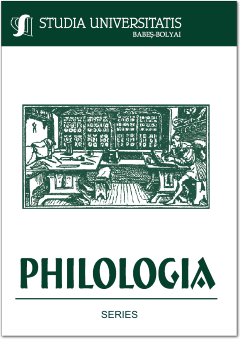FLICKER
FLICKER
Author(s): Constantina Raveca BuleuSubject(s): Language and Literature Studies, Foreign languages learning, Theoretical Linguistics, Applied Linguistics, Studies of Literature, Philology, Translation Studies, Theory of Literature
Published by: Studia Universitatis Babes-Bolyai
Keywords: Theodore Roszak; Flicker; counterculture; the Sixties; cinema; cryptographic novels;
Summary/Abstract: Flicker. Theodore Roszak’s sophisticated and extreme long novel Flicker, published in 1991, resonates in many ways with the masterpieces of the cryptographic thriller tradition, like Umberto Eco’s Il nome della rosa (1980) or Dan Brown’s Da Vinci Code (2003). Its core lies in the conspiracy theories, due a fictional plot driven from the deep shadows of the world of cinematography. By doing some research, a UCLA film scholar comes across the films made by a rather allusive American director protected by a secret organization. The director’s hidden biography takes us back to the interwar Germany, making the scholar to discover that his subject’s films contain hidden messages that can be deciphered by means of a special device.
Journal: Studia Universitatis Babes-Bolyai - Philologia
- Issue Year: 64/2019
- Issue No: 1
- Page Range: 31-40
- Page Count: 10
- Language: English

